Many people enjoy spending time in their kitchen, whether it be while cooking, eating, or spending time with family and friends. But very few people enjoy cleaning up afterward! If you have a dishwasher in your kitchen, you might feel guilty about piling all the dirty dishes in there rather than washing them by hand. But is this a good use of water, or is it wasteful? We researched this to find out how environmentally friendly a dishwasher is.
The good news is, running your dishwasher actually uses significantly less water and electricity than doing the same dishes by hand. You don't need to pack the dishes in there like you're playing a game of Tetris, either. Your dishwasher can handle even small loads more efficiently than you can.
If you're still worried about the cost and environmental impact of your dishwasher, continue reading for tips on how to maximize its usefulness.

Dishwashers: advantages and drawbacks
Dishwashers save time compared to hand-washing dishes. In addition, most dishwashers have an option to sanitize dishes using water that is at least 140 degrees Fahrenheit. The water that comes out of your tap is probably limited to 120 degrees to prevent scalds, and you shouldn't override this if you don't want painful burns.
So if you're very short on time or if sanitizing your dishes is a priority, you might prefer dishwashers even without the environmental advantages.
On the other hand, some dishes can't be put in the dishwasher because they will be tarnished, scratched, melted, or broken. In that case, you will want to hand wash even if it uses a little more water. And sometimes, you need a clean fork right now and don't want to wait for the entire dishwasher cycle to run.
Is using a dishwasher better for the environment?
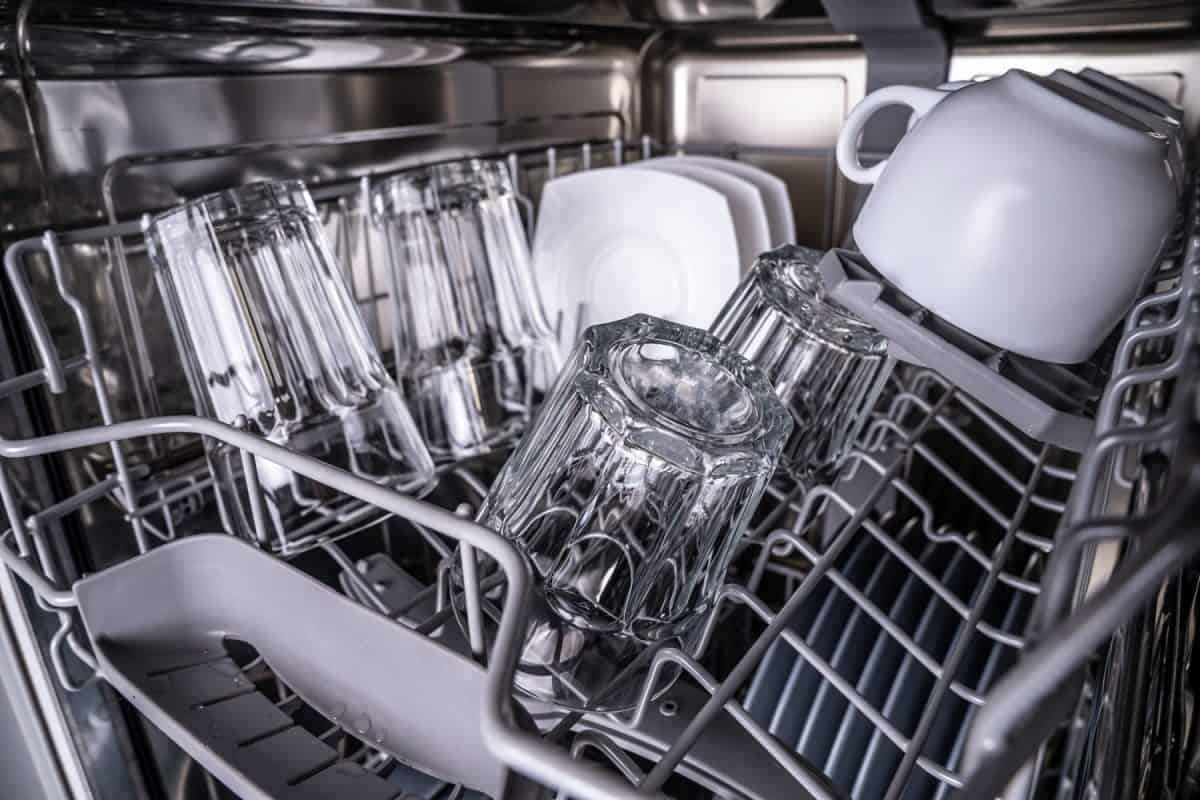
Water use
According to the United States Geological Survey, washing by hand uses between 9 and 27 gallons of water per session. The average kitchen faucet produces 1.5 to 2 gallons of water per minute, so if you want to estimate your water consumption, set a timer and then multiply accordingly.
Your particular dishwashing method can significantly affect how much water you use. For example, running the tap continuously to rinse dishes can add several gallons to your total.
Knowing how much water your dishwasher uses is a bit easier, especially if it's Energy Star certified. In that case, it will use less than 6 gallons in the "average" cycle. The newest machines will use less than 3.5 gallons!
Note that this is for the average cycle, so your actions can still influence how much water is used. If you have very lightly soiled dishes and run a quick cycle, this will use less water than if your dishes are heavily soiled, and you pick the hardest-hitting option on the list.
Some newer dishwashers will even have an Auto Sense option that will adjust how much water is used based on how much grime is coming off your dishes.
Even if your dishwasher isn't Energy Star certified, it doesn't use more than 10 gallons of water for the average cycle unless it was manufactured before 1994. In the unlikely event, your dishwasher is older than that (or if you don't know), you might consider replacing it with a newer model.
To save water, scrape food off dishes instead of pre-rinsing them. Select the shortest cycle you need to clean your dishes, or allow your dishwasher to sense how much washing is needed automatically. And don't select extra rinses unless you need them.
Check out this water-saving kitchen faucet on Amazon.
Energy use
It might seem like handwashing would be the clear winner in terms of energy use. However, the bulk of the energy cost of washing dishes comes from heating the water, which you need to do whether using a machine or your hands.
In general, running the dishwasher works out to about half the energy use of washing by hand.
If you want to cut down on power used by your dishwasher, the main thing is to skip a heated dry cycle. You also might want to avoid running your dishwasher when it's hot outside, and you have the air conditioning running. The hot dishwasher will heat your house and make the air conditioner work harder. Run the dishwasher at night or during cooler parts of the day instead.
Are dishwashers expensive to run?
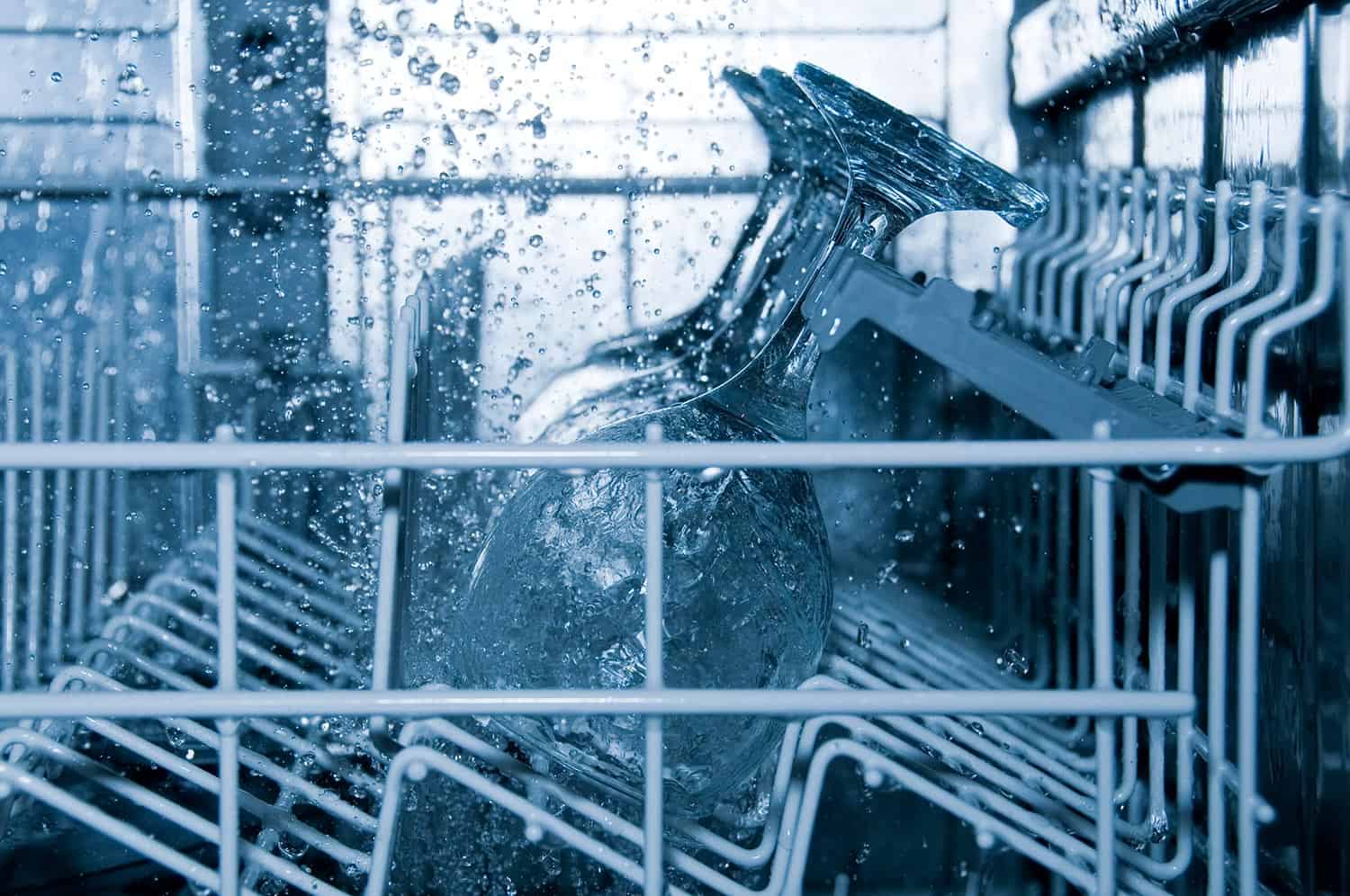
According to Energy Star's website, a dishwasher costs about $35 per year to run. This comes out to a tiny bit less than 10 cents a day. A cost few people would consider extravagant.
There are also non-material costs to consider. A dishwasher can save you an estimated 230 hours per year. If you think of it as "paying $35 per year to gain almost ten days of free time," you'd probably consider that a steal!
Is it cheaper to wash dishes or use a dishwasher?
When you run a dishwasher, you're paying for water and heat. When you wash dishes by hand, you're also paying for water and heat. Since hand washing uses more of both, it's going to cost you more than using the dishwasher.
Energy Star estimates that you can save $130 per year on utility bills if your dishwasher is one of the latest models.
There's also the cost of the dishwasher itself to consider, of course. An average machine might run you about $500. If you're saving $130 per year, the dishwasher pays for itself in a little over three years. You can expect your dishwasher to last up to 10 years, so that's a lot of savings over the life of the machine.
Is it cheaper to run a dishwasher at night?
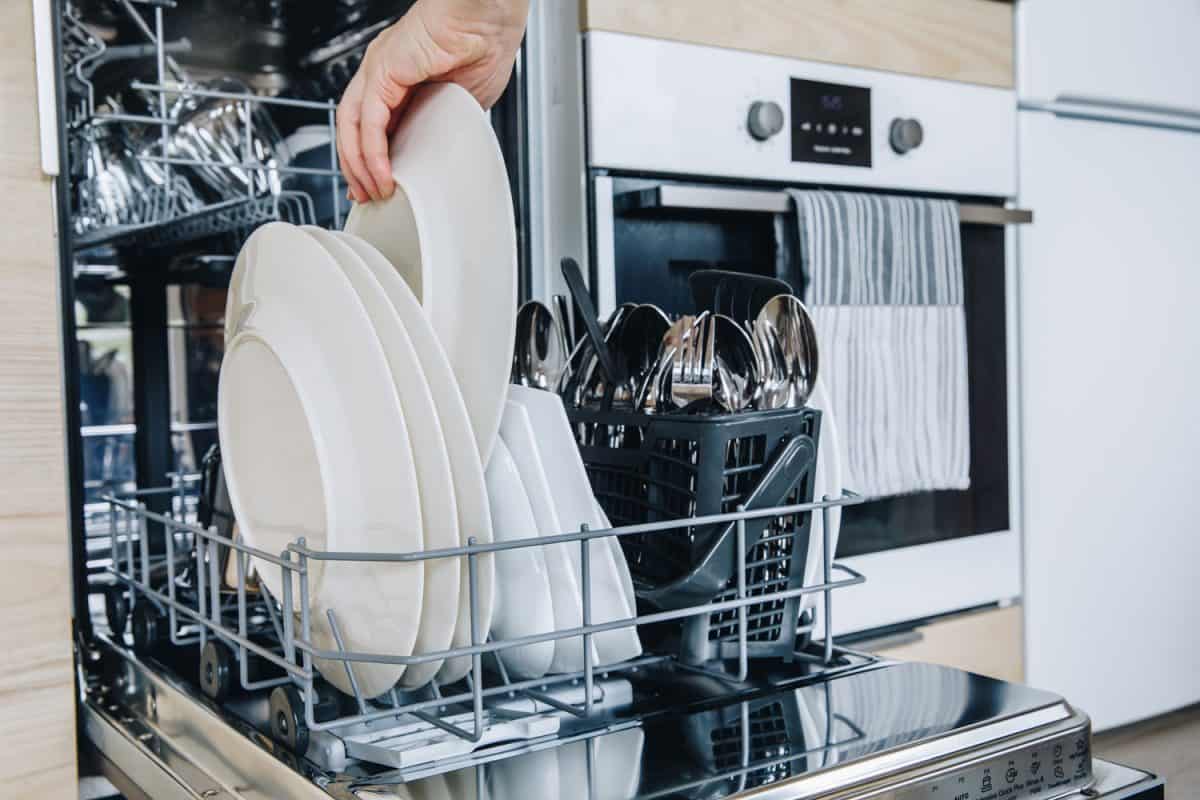
Many utility companies charge more for electricity usage during "peak hours." When exactly peak hours fall is going to vary based on your location and utility provider.
However, it's a pretty safe bet that the middle of the night will not be a peak hour. Whenever possible, use the delay start setting to have your dishwasher run late at night or very early in the morning.
Electricity is at its most expensive on hot summer afternoons, so definitely be conscious of when you run your dishwasher when the weather is warmer. Also, take note of when you run your air conditioning the most. Running the dishwasher can easily heat your whole kitchen, and you don't want your air conditioning to have to work harder than necessary.
Should I run my dishwasher every day?
Whether or not you run your dishwasher every day is going to depend on your particular needs. Dishwashers are most efficient when they're full but not overloaded.
If you generate enough dirty dishes to fill it up every day, then the decision is simple. But what if you only fill the dishwasher every 2 or 3 days?
You could wait for the dishwasher to be full and then run it. If you find that your dishes aren't getting clean because they sit in the dishwasher for too long, you could do a "rinse and hold" cycle every day and then a full wash when needed. This is less efficient than just running a cycle, but it's certainly better than running 2 or 3 complete cycles.
Alternatively, some dishwashers can create separate wash zones. If you have one of these, you can set it only to wash the top or bottom half and get your dishes clean daily while using significantly less water and power than a typical cycle.
Save time and the environment by using a dishwasher
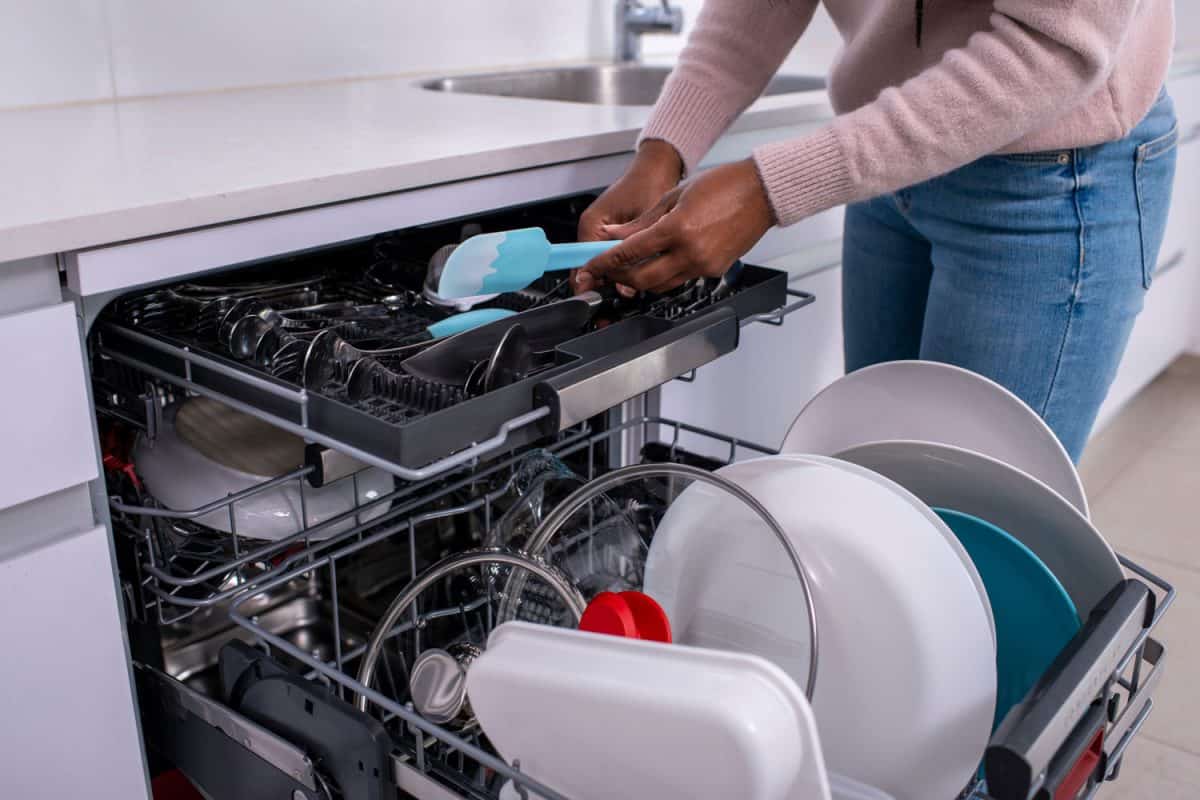
A generation ago, a dishwasher was seen as a luxury item. Now they're available in almost every home, but we sometimes still feel guilty for using them. However, dishwashers beat handwashing in just about every way. They use less water and power, saving you money. They can sanitize your dishes. And perhaps most importantly, they can give you extra time to do all the things you love most in life.
Before you go, check out these other related posts:
How long does a dishwasher run?
How many amps does a dishwasher use?

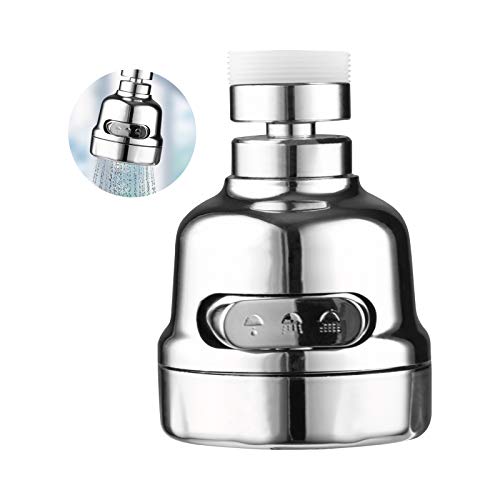
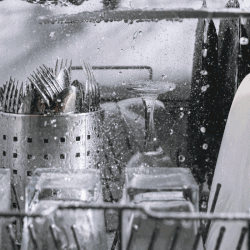
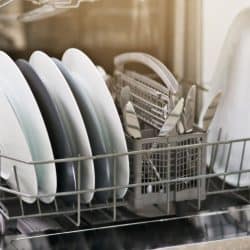



![Clean dishes in a dishwasher machine after washing cycle, How Long Should A GE Dishwasher Run? [Inc. On Normal]](https://kitchenseer.com/wp-content/uploads/2022/03/Clean-dishes-in-dishwasher-machine-after-washing-cycle-250x250.jpg)